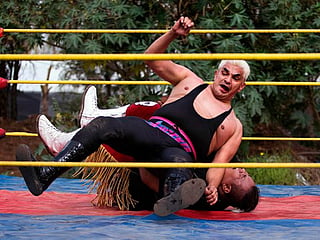US: Prison inmate hanged himself with coronavirus mask, officials say
In Connecticut, more than 1,344 inmates in the state's prisons have contracted the virus

Also In This Package
A prison inmate in Connecticut this week hanged himself in his cell with a cloth mask that had been issued to him as part of an effort to prevent the spread of the coronavirus, correction officials and the state's chief medical examiner said.
The inmate, Daniel Ocasio, died Wednesday after he was found at 5.07am with a ligature around his neck while he was sitting on a bunk at the Corrigan-Radgowski Correctional Center in Uncasville, Connecticut, the state's Department of Correction said.
The chief medical examiner, Dr. James Gill, ruled Thursday that Ocasio's death was a suicide.
Ocasio, 32, who lived in Windsor, Connecticut, had been held at the prison, in southeastern Connecticut, since Aug. 5 on an outstanding charge of third-degree burglary, prison officials said. He had been unable to post a $10,000 bond.
In Connecticut prisons, much like in other state and federal prisons, the virus has spread among inmates and correction officers. It has prompted new safety protocols for testing and mask-wearing.
But elsewhere, masks have in some instances become a flashpoint between civil rights groups, which say that inmates don't have enough personal protective equipment, and prison guards, who say that masks could be used by inmates to harm themselves or others.
Ocasio's death is being investigated by the Connecticut State Police. A spokesman for the agency said such an investigation was routine when an inmate dies in custody. The Department of Correction is also investigating.
A spokeswoman for the state prison system wrote in an email Thursday that investigators would leave no stone unturned in their inquiry. She added that they would examine the cloth material that Ocasio used to make the ligature.
"With that being said, there are all sorts of authorized materials that could be used to self-harm," the spokeswoman, Karen Martucci, wrote. "We are not going to have a knee-jerk reaction here."
A public defender who represented Ocasio in a previous criminal case did not immediately respond to a request for comment Thursday.
In Connecticut, more than 1,344 inmates out of the 9,596 inmates in the state's prisons have contracted the coronavirus, and seven inmates have died, according to the Department of Correction. More than 386 corrections employees have been infected.
Inmates are required to wear masks when they exit their cells or cubicles, as well as when they enter a common area, said Martucci, who added that the state's correctional facilities had provided an ample supply of masks.
In Alabama, a county jail in Huntsville has faced criticism for barring inmates from wearing masks and confiscating them, the local news media reported. A spokesman for the Madison County sheriff told the news website AL.com that inmates could harm themselves or others with the metal nose pieces on masks, and that the masks could be tied together to make ropes.
"You give them face masks (with) a nose piece - metal pieces in them - they're going to eat them," the spokesman, Brent Patterson, told the website. "They're going to swallow them."
In Pittsburgh, the leader of a correction officers' union was sent home in April after he refused to wear a mask with 17-inch strings attached to it, saying that the strings could be used to choke someone, the television station WTAE reported.
And in late July in Fresno, California, a group of inmates filed a class-action lawsuit against Sheriff Mike Boudreaux of Tulare County, accusing him of failing to provide them with masks. Boudreaux told The Fresno Bee that it was unrealistic to believe that the county could completely control the spread of the virus in its detention centers, and that his office was doing everything it could to keep inmates healthy and safe.
Sign up for the Daily Briefing
Get the latest news and updates straight to your inbox









